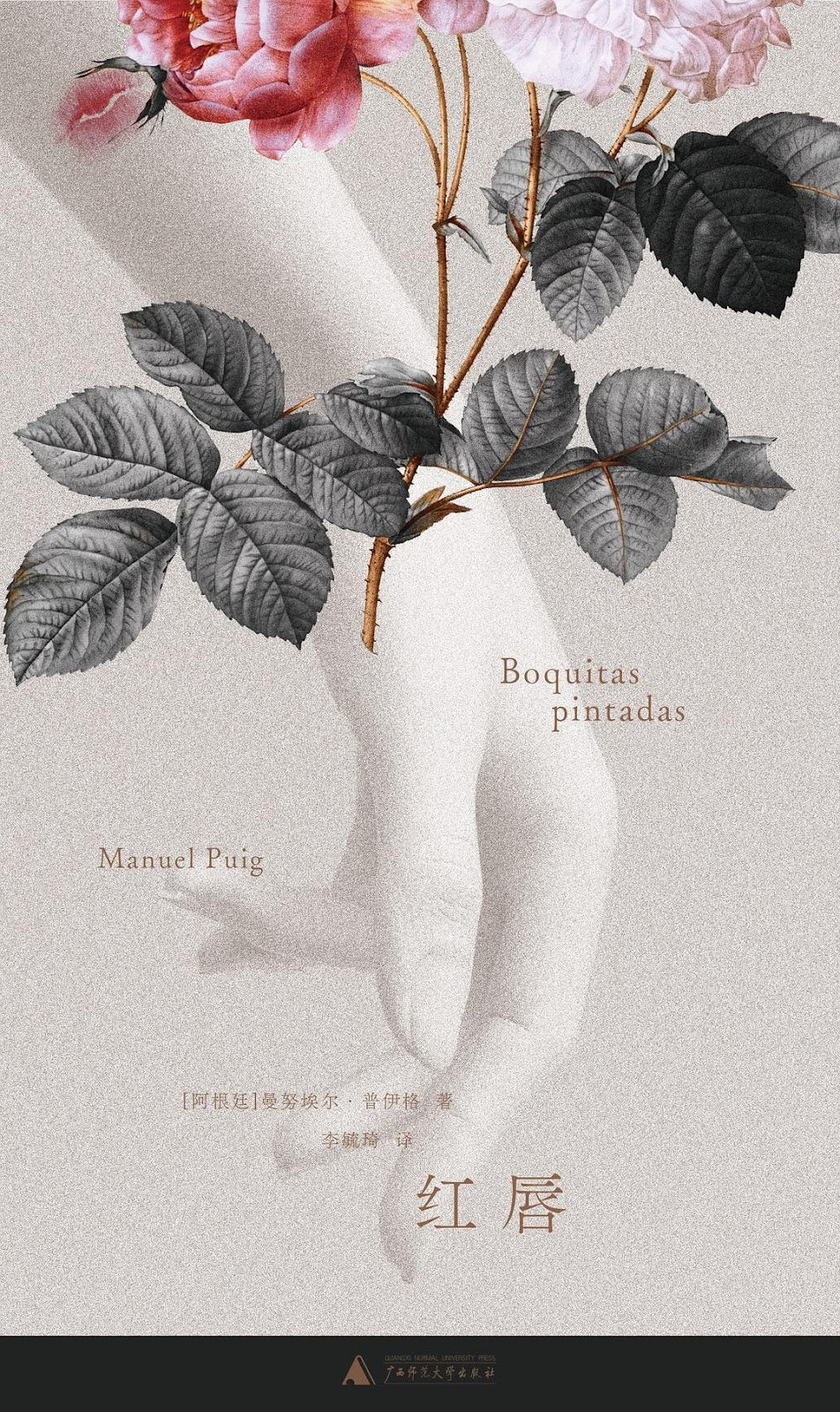Red lips
Red lips
[Argentina] Manuel Puig
Low stock
Couldn't load pickup availability
About Book
About Book
Boquitas pintadas
Douban
NeoDB
A postmodern literary classic influenced by Wong Kar-wai, Haruki Murakami, and David Foster Wallace, and the Latin American literary icon Puig! The inspiration for Days of Being Wild, a vivid tango of heartbreak, a puzzle game of love and fate.
——————————
【Content Introduction】
In 1969, "Red Lips" was serialized in a magazine for sixteen issues.
Through letters, diaries, newspaper clippings...even police files, family albums, tarot readings,
A complicated love triangle is pieced together.
The protagonist Juan Carlos is a charming playboy.
But he is already dead when the book opens.
This death is like a thread that pulls out the tangled knot between lovers...
Accompanied by ten tango pieces, the investigation into the crime of human desire begins:
In the game of love and death,
They are hunters of desire, but also prey of fate.
——————————
【Editor's Recommendation】
🍷 Puig, the Latin American literary idol and a representative work of prodigal literature
Born on the prairie, he spent his life wandering around the world, enjoying sensual pleasures;
I studied film, served in the military, washed dishes, and taught Spanish;
Literature, music, and film, a diverse range of interests, drawing on the strengths of various genres and incorporating them into novel creation;
The Chinese translation of Manuel Puig's masterpiece, out of print for many years, is now available again!
🍷 Collage, stream of consciousness, polyphony: a montage of desire, a puzzle game of love and fate
There is no traditional novel text here, only:
Love letters that were burned, archives that have been sealed for many years,
Humble confessions, painful condolences, heartbreaking monologues...
Puig won't tell you the ins and outs, but asks you to:
Sort out the timeline, infer the relationships between characters, and use tarot cards to tell the protagonist's fortune...
You must solve the puzzle yourself and become a part of the story.
Searching for a way out of the maze, just like the trapped men and women.
🍷 A heartbreaking tango, taking you back to the bohemian 1930s and experiencing the cruel youth of Latin America
The setting of popular novels and the form of postmodern literature are what Puig is best at writing.
Two men and six women, love is surging, who does the township civil servant who is the center of attention love?
A lonely young woman wrote a letter to confide her inner thoughts, but it caused another storm?
I suggest you put aside all your conservative ideas before reading, because the people in the story:
He is vain, greedy, selfish, and a playboy...but he still dances with light and lively steps.
Dance, everyone will eventually disperse.
🍷 Amazing editing and flowing narrative, a charming prodigal and a dance of passion under the shadow of death:
Postmodern classics that influenced Wong Kar-wai, Haruki Murakami, and David Foster Wallace
From "Days of Being Wild" to "Flower City", see all of Wong Kar-wai's routines in "Red Lips":
The male protagonist Juan Carlos can be both Ah Fei and Ah Bao...
Wong Kar-wai: "It's a great work... He is the one who has had the greatest influence on my filmmaking."
Haruki Murakami: "There are strong similarities between his literature and my literature."
——————————
【Celebrity Recommendation】
He (Puig) is the one who has had the greatest influence on my filmmaking... His best work is "Red Lips", a great work.
—Wong Kar-wai
Manuel Puig is one of my favorite writers, he has an extremely free imagination, and I find strong similarities between his literature and my own.
—Haruki Murakami
Perhaps I belong to a group of writers who are very much influenced by postmodernism—I’m thinking of Calvino—or Latin American writers like Borges, Márquez, and Puig.
—David Foster Wallace
The crimes recounted in “Red Lips” encapsulate Puig’s narrative universe. More clearly than in the novel as a whole, the deaths and shifting blame weave the hierarchies that sustain the intrigue and drama that are so inherent in a world of rigid social distinctions.
—Ricardo Piglia
Publication Date
Publication Date
Publisher
Publisher
Imprint
Imprint
Pages
Pages
ISBN
ISBN
share

